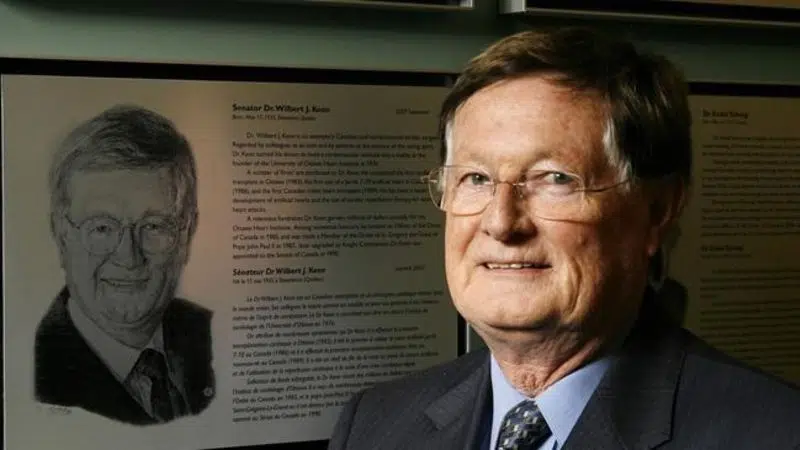
Wilbert Keon, trailblazing heart surgeon, doctor and senator, dies
OTTAWA — A world-renowned Canadian pioneer of heart surgery and former senator has died.
Dr. Wilbert Keon founded the University of Ottawa Heart Institute and in 1986 performed Canada’s first artificial-heart implantation, which was revolutionary for the time.
The institute says Keon died Sunday. He was 83.
